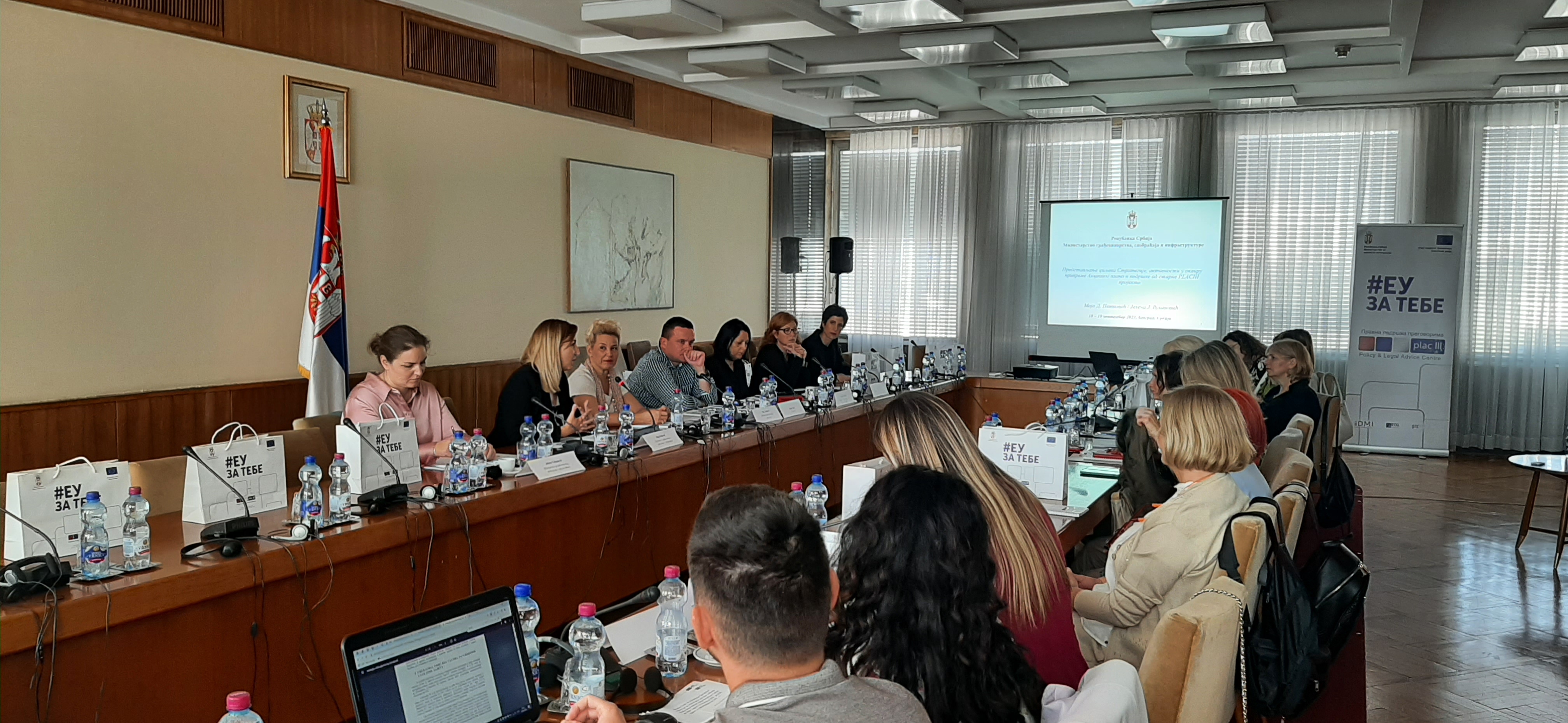The
PLAC III project has started a new cycle of workshops where project experts
present the results of work on the harmonisation of national legislation with Union
acquis to beneficiary institutions and stakeholders.
The first two workshops in the new cycle were dedicated to the topic of improving the energy performance of buildings, which is an area within the Negotiating Chapter 15. At the same time, it is the number one topic in the European Union, which is constantly improving legislation in order to achieve the best possible results in the fight against climate change. The area is regulated by Directive 2018/844, which amended the provisions of the Directive on the energy performance of buildings and the Directive on energy efficiency, as well as Regulation 2018/1999 on the Governance of the Energy Union and Climate Action.
In the EU, buildings account for 40 percent of consumed energy and generate (during construction, renovation, demolition) as much as 36 percent of greenhouse gas emissions - GHG. The EU's goals by 2030 are to reduce GHG emissions by 55 percent compared to 1990 levels.
In the negotiations with the EU, Serbia has opened Cluster 4, to which the Chapter 15 is part of. In order to progress in the negotiations, Serbia must improve the harmonisation of laws with Union acquis, as well as to create an Action Plan for the implementation of a long-term strategy to encourage investment in the reconstruction of the national building fund and implemented building renovation programs. The Building Renovation Strategy has been adopted and it sets targets for the period up to 2050 and highlights the need to introduce zero energy consumption standards for all new public and commercial buildings.
The PLAC III project provided support to the Ministry of Construction, Transport and Infrastructure in the preparation of the draft Action Plan for the implementation of the Strategy and the development of recommendations for technical measures to improve the energy efficiency of buildings and reach the level of zero energy consumption (nZEB).
The results of the work were presented by project experts Maja Todorović and Bojan Gajić at workshops held on September 18 and 19 in Belgrade. The draft Action Plan that they presented is based on the general goal of the Strategy, which is the reduction of energy consumption by 38 percent and the reduction of greenhouse gas emissions by 31 percent by 2050. Buildings are categorised as single-family, existing multi-family, existing commercial and new residential commercial and public buildings. The plan determines the levels of improvement, measures and activities to achieve targets as well as the estimated costs. The highest level of efficiency is the so-called nZEB - buildings with zero energy consumption. Improvement measures refer to the thermal envelope of the building (reduction of the need for heating), thermo-technical systems (more efficient use of thermal energy), electrical energy systems (lower electricity consumption) and replacement of energy sources with renewable ones. Along with the draft Action Plan, a plan of measures and activities for 2024 - 2026 period was presented. According to estimations, the area that should be annually covered by renovation is almost 5 million square meters.
The draft Action Plan is harmonised with the provisions of the relevant Union acquis.
As one of the measures to provide financial incentives, the introduction of green bonds of the Republic of Serbia was proposed.
The workshops were attended by some 60 participants from several ministries of the Government of Serbia, as well as from the Serbian Chamber of Commerce, technical faculties in Belgrade, Novi Sad and Kragujevac and representatives of other stakeholder organisations.




